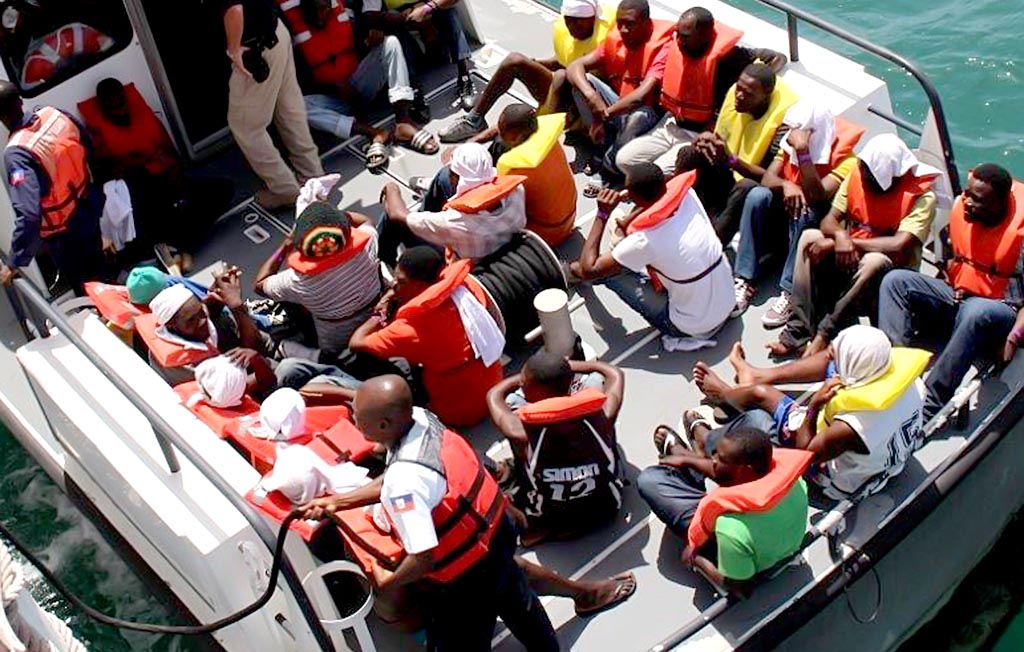By Marie d’Armagnac
2,128 illegal immigrants, the vast majority of them men, have disembarked from around twenty boats in Lampedusa in the past 24 hours. They come from Tunisia, sub-Saharan Africa and Bangladesh. Since the beginning of the year, the Italian authorities have registered more than 12,000 arrivals; “Ghost landings” are of course not included in this number.
Italy, on the verge of social and financial collapse, began to see the light at the end of the tunnel of this pandemic with the gradual lifting of lockdown measures under the coalition government of MP Mario Draghi. That means these massive arrivals of illegal migrants, heralding a steady stream that could intensify, are making headlines across the media.
The modest hotspot Contrada Imbriacola near Agrigento is bursting at the seams, it can only accommodate two hundred migrants, and only temporarily … In the last few hours, the emergency has been to find a sufficient number of Covid tests to close the quarantine ships mobilize before the newcomers are transferred to the mainland.
Italy, which has been plagued by drastic restrictions on civil liberties for 18 months and has almost a million new arms, sees once again how the European Union is cowardly looking away from what – with the help of the economic crisis – promises to be the future great wave of migration.
Matteo Salvini quickly jumped on the bandwagon: he exchanges ideas with the current Interior Minister Luciana Lamorgese “in a spirit of cooperation” and calls for a meeting with Mario Draghi. The latter, who foresees “a difficult summer” on the migration front, will probably want to take the following line: exhume the Malta Agreement of 2019, which provided for the distribution of illegal immigrants to voluntary countries. This provisional agreement was signed by Malta, Italy, Finland, Germany and France. This agreement should be a first step towards a profound reform of the Dublin agreements by the European Union, which obviously has not happened. We therefore understand Matteo Salvini’s reaction: “If we wait for European solidarity, I think it will end up like the vaccines, namely nowhere. “We will ask Italy to behave like Spain, Greece and France,” said Mario Draghi. “There is no other country with the numbers, the dimensions and the problems that Italy has. The other countries are not waiting for Europe, but are defending their own territories in their own right. “
In any case, the migration question is a test for Mario Draghi: is he correct when, like his ally Enrico Letta (Partito Democratico, left), he expects European solidarity to come into play? Given the catastrophic crisis management over the past 18 months, that would be very naive.
On this issue, it is more likely that the allies of the Italian ruling coalition will tear each other apart. The events of the weekend brought the three center-right parties together: Giorgia Meloni calls for a sea blockade, the deputy spokesman Fabio Rampelli (Fratelli d’Italia) warned: “We are facing an invasion that can get out of control.” And in comparison Regarding the 2015 crisis, he added: “It would be even more serious now, as a pandemic is afoot and an economic crisis that does not allow superficiality.” “This could be the first signal of what can happen in the next few months,” warns the Forza Italia, “and it would be a big mistake to underestimate the alarm,
The emerging migration crisis is therefore becoming a stress test for the very heterogeneous Draghi government, but also for the credibility of the European Union.
Source: Boulevard Voltaire/UME
